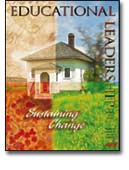You can improve your proposal-writing success by following a handful of fundamental principles.
Have a fundable idea.
Follow the guidelines to the letter.
Be proactive in seeking funding sources.
Craft the proposal with great care.
Critique the proposal before sending it in.
Now that we have the basics established, let's add a few details so that you may join the ranks of funded educators.
Have a Fundable Idea
Test your idea. Is it practical? Can you accomplish it with the amount of funding that you anticipate? How much time will you need to direct the project? Does your immediate supervisor support your efforts? A positive answer to each question helps ensure success.
Attend to Details
When writing your proposal, be certain to adhere to the guidelines. Follow them, no matter how redundant they may seem. Most guidelines require some statement of "need." Ask yourself, "Why should I be funded?" The answer will help you justify your request and provide relevant data to support your statement.
For example, if you are requesting funds for additional computers, show how the students benefit from technology. Don't forget to add staff development funds. In most cases, adding technology to the classroom requires teacher inservice education.
Virtually all guidelines require a needs statement, a set of objectives or outcomes, procedures and activities, an identification of personnel involved, an evaluation, and a budget. Craft each element clearly and accurately. Then double-check the guidelines to make sure that every criterion is addressed in your proposal. As you edit your first draft, examine each section for completeness and syntax.
Be Proactive
Alert your school district's development officer, if you have one, about ideas that you have. Use the school infrastructure to your benefit. Ask the development officer to alert you about grant proposals from federal agencies, state departments of education, foundations, and businesses. Don't be caught off guard. A winning proposal is not dashed off in the middle of the night; it takes time to develop.
Craft Your Proposal
After drafting your work, check it for page or word limitations. Proofread each section carefully. Make certain that you use the same terms in your proposal that are in the guidelines. If a guideline calls for an "outcome," label that section "Outcomes." Read the entire proposal for flow. Do the sections flow smoothly from one to the next? Are all transitions done with care?
Award-winning proposals are not written. They are rewritten!
Critique Your Efforts
When your proposal is rewritten, you have one last step to complete. Ask two or three colleagues to give it a thorough review. Provide them with the evaluative criteria that are usually included in the guidelines. Their task is to simulate the outside review process and to identify vague statements, missing transitions, and areas of weakness. With their feedback, you can modify the proposal well ahead of the deadline and submit a well-crafted document.
Preparing a top-quality proposal and being proactive about finding funding resources take more time and effort than you might expect. But being funded is the name of the grant's game. The competition is keener than ever, and only the best proposals—make that the best-written proposals—get funded.
Some Basic Tools for Grant Proposal Writers
Some Basic Tools for Grant Proposal Writers
The following resources can help a grant seeker identify foundations, agencies, and organizations that offer grants.
Education Grants Alert. Provides tips and resources for those seeking education-related funding. Contact: Capitol Publishing Group, P.O. Box 1453, Alexandria, VA 22313-2053; Phone (800) 655-5597, $329 a year.
